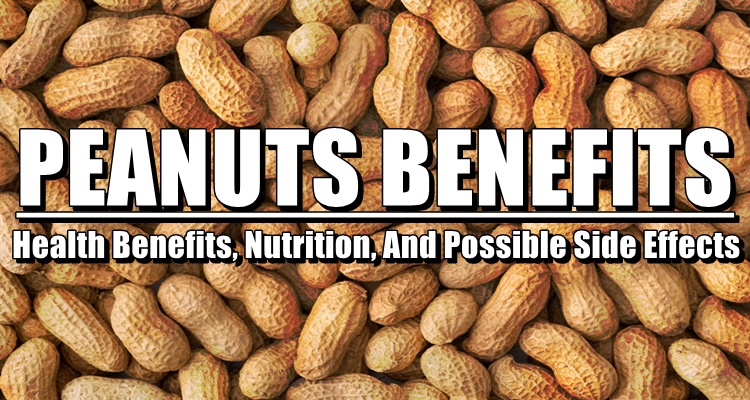What are the peanuts benefits and the possible side effects of this?
PEANUTS BENEFITS – How would eating peanuts impact your health and what are the benefits and possible side effects you can get from this?
Famous for being a great and healthy snack, peanuts also offers nutrition and health benefits that the body needs which other snacks don’t have. They are a good source of healthful fats, protein, fiber, plenty of potassium, phosphorous, magnesium, and B vitamins.

Discussed below are the benefits of eating peanuts and how it can make an impact to our health:
- It may promoted heart health and lowers bad cholesterol (LDL) levels. The resveratrol in peanuts has antioxidant properties which can work against heart disease.
- It can help weight loss which is why it is best as a snack if you’re trying to shed off some pounds. This type of snack can help you feel full which can ultimately make you consume fewer calories later on.
- Harvard Medical School and Brigham and Women’s Hospital (Boston) has a study which discovered peanuts’ association in lowering risk of gallstones.
- American Diabetes Association recognizes peanuts as a diabetes superfood because the fiber it has may help lower blood sugar levels.
- The isoflavones, resveratrol, and phenolic acid have anti-cancer properties which makes it as anti-cancer food.
Peanuts are rich in several essential vitamins and minerals such as vitamin E, vitamin B1 (thiamine), vitamin B3 (niacin), vitamin B9 (folate), biotin, copper, magnesium, manganese, and phosphorus. And the best way to eat peanuts is by boiling them and to each in moderate amount.
Too much consumption of peanuts may lead to aflatoxin poisoning, allergic reactions, and inhibited iron absorption as per article from Style Craze.
READ ALSO:
- BAD FATS: Foods Not To Eat Due To Bad Fats It Contains
- HEALTHY FATS – What Are The Foods That Can Give You Healthy Fats?
What can you say about this? Let us know!

